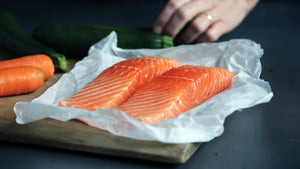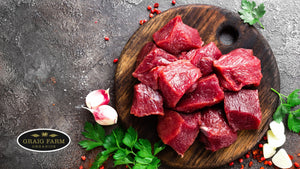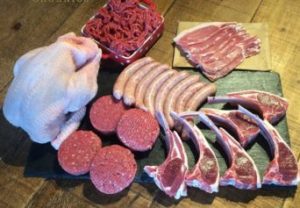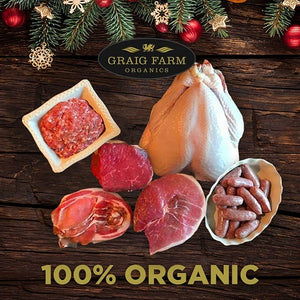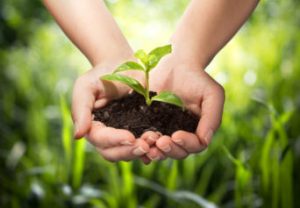Farmageddon - An insight into intensive farming

What is intensive farming?
Intensive farming constitutes a number of practices across different sectors, covering everything from growing high yield crops with the aid of fertilisers and pesticides to keeping livestock trapped in confined spaces.
Intensive farming maximises yield whilst maximising negative implications both morally and ecologically.
The consequences of Intensive Livestock Farming:
Modern intensive livestock farming creates a huge amount of meat, eggs and dairy products with profits and turnaround times in mind. To keep production costs down the animals are given the bare minimum in comfort whilst given the maximum amount of food to get them to their required weight as quickly as possible; this method is also known as ‘factory farming’
We have listed some of the practices and consequences of intensive livestock farming:
- Unclean air: When waste piles up in animals sheds, ammonia and dust is created which irritates animal’s eyes skin and throats.
- Artificial lighting: Farms often simulate unnatural day light lengths to promote greater growth over a short period of time
- High levels of medication: These are administered so animals can survive in the poor/cramped conditions that intensive farming creates. Some industries dangerously feed their animals antibiotics which when eaten, can lower the immune systems of humans
- Intensive re production: Female animals often spend the majority of their lives pregnant, heaping incredible strain on their bodies
- Mutilations: To improve the behaviour of animals, many suffer mutilations to their tails, testicles, horns, toes or beaks.
- Shortened Lives: Factory farmed animals are often slaughtered when they hit market weight, well before the end of their organic farming lifespans.

The above reasons contribute to the moral objections many people have towards intensively farmed animals. Many of the above factors were ignored until high profile television programs, like Hugh Fearnley- Whittingstall’s Chicken Run brought the practices of intensive farming into the UK’s living room.
Intensive Arable Farming
It isn’t just intensive livestock farming which carries negative consequences.
The Common Agricultural Policy guaranteed that farmers would have somebody to buy their produce. Farmers knew that they could produce as much food as they could so they used every inch of their land for production, often changing from pastoral farming to arable farming with some disastrous complications detailed below.
Hedgerow removal:
Between 1945 and 1995 over 60% of hedgerows in England & Wales were removed. Whilst hedgerows limit the amount of land available for the farmer, they also provide essential habitats to some of the UKs wildlife. This loss of habitat has
Soil Erosion:
The change between pasture to arable farming has led to an increase in soil erosion. Hedges protect soil from the wind and their removal often creates a huge expanse of land vulnerable to the wind, fields when ploughed are even more vulnerable to the effects of wind and rain allowing flooding and subsidence. It is worth noting that pasture land (grassland) binds the soil together well, eliminating a lot of the problems.
Herbicides:
Herbicides are widely used to kill weeds and other undesirable plants which may take up room/natural resources needed for crops. Herbicides are usually sprayed directly onto crops.
As well as being carcinogens and held responsible for causing a wide range of respiratory damage, herbicides have disastrous environmental effects.
Although most herbicides are not considered a danger to animals directly, by changing the availability of nest sites/materials and disrupting an animal’s food source, herbicides can make life incredibly difficult for birds, insects and other animals.
It is because of this, that endangerment and extinction of species are the greatest risk of herbicide use.
Pesticides:
Pesticides can be classed as any substance intended to prevent or destroy pests on crops. Pests may include animals, rodents, insects, mould and weeds. Although pesticide use is regulated by the Environmental protection agency, traces of pesticides can still reside on the food we eat, pesticides are dangerous to humans because of they are designed to kill living organism.
Pesticides have been linked to learning problems in children, attacks on the nervous system, causing breast cancer and a weakened immune system. Environmentally, pesticides reduce biodiversity whilst attacking helpful organisms.
Further Complications
The increased use of chemicals on crops can lead to air and water pollution; chemicals are easily washed into rivers by rain water or through leeching through ground.
Why choose Organic Farming?
The benefits of organic farming are wide and far reaching:
Organic farming does not use chemical fertilisers of feed additives for livestock. Organic farming achieves its results through biological pest control and crop rotation. Unsurprisingly, organic farming is less efficient and organic foods are more expensive than their non-organic counterparts.
The promotion of Biodiversity:
Organic methods of farming rely on crop rotation to increase soil fertility whilst naturally raising animals promotes biodiversity. The presence of hedgerows and pastureland provides the perfect habitat for many of our indigenous species whilst the absence of chemicals ensures that a safer environment is enjoyed by all.
Better tasting food
Organic food can really taste better than its intensive counterpart; research has shown that organic produce has lower nitrate contents than intensively farmed food. This can lead to sweeter tasting food with higher levels of natural anti-oxidants.
Job Creation
Organic Farming is requires more man hours than intensive farming, less can be done by machines and there is often a lot of ground to cover to feed stock. More man hours = more jobs.
A safer environment
The runoff chemicals from intensive farming can seep into groundwater supplies; organic farming enriches the soil, not only eliminating the risk of groundwater pollution.
The good news is that thanks to a lot of hard work, more and more people are choosing organic. This comes at a time when it has been reported by scientists that organic farming COULD in fact feed the world, the University of California study found that organic yields were only 19.2% lower than those form convention crops and this could be reduced to just 8% if crops were rotated more frequently.
To have a look at our full range of organic food, take a look at our site here.
- Graig Farm
